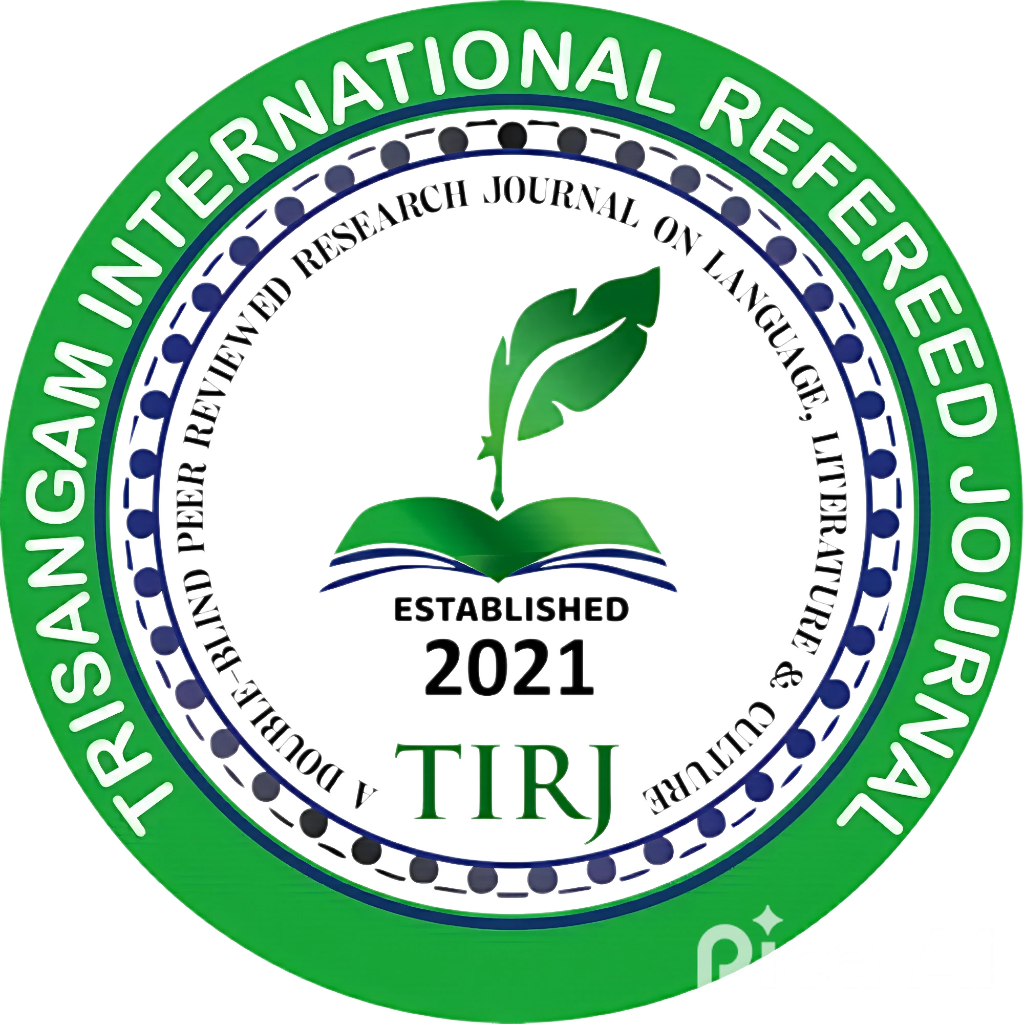Itihaser nirman : Raktakarabi o Muktadhara/ ইতিহাসের নির্মাণ : রক্তকরবী ও মুক্তধারা
Keywords:
- Ugra-jatiyatabad,
- Samrajyabad,
- Punjibad,
- Dharmaghat,
- Karshanjibi,
- Akarshanjibi,
- Overtime,
- Shishushramik,
- Jatibiddesh
Abstract
The extreme nationalism of the First World War and the capitalist imperialism transformed commonman’s life into a nightmare. To emancipate humanity from this condition, Rabindranath Tagore has composed two plays named ‘Muktadhara’ (1922) and ‘Raktakarabi’ (1924) keeping in mind both the national and international contexts. In both the plays, Tagore has not only dismantled the ill-effects of capitalism, imperialism, and extreme nationalism, but he has also referred to the path of freedom from the oppression. In the play ‘Raktakarabi’, Tagore has portrayed how Modern European capitalism has controlled nature and human civilization through the use of scientific knowledge and technological advancement. This capitalism has also become the apparatus for control and exploitation. By portraying the socio-economic politics of the mining area, Tagore has dismantled the harsh reality of capitalism. He has also referred to the dialectical relationship between the labour and master societies. In the play ‘Muktadhara’, Tagore has shown how extreme nationalism negatively affects trust and humanity. Using the advantage of geographical positioning, a country tries to take control over its neighbouring country by restricting the necessary water flow. King Ranajit does not trust his uncle Biswajit; the civilians do not trust their king; the army general cheats Avijit; Bhibhuti is suspicious about his spies and creates an environment of mistrust. These pictures represent the ill-effects of extreme nationalism. This play also portrays how extreme nationalism transforms human beings into animals and thus creates history.
Downloads
References
১. মুখোপাধ্যায়, জীবন, উচ্চ-মাধ্যমিক আধুনিক ইওরোপ ও বিশ্ব, ছায়া প্রকাশনী, কলকাতা, জুন ২০০১, তৃতীয় সং, পৃ. ১৪৭
২. মুখোপাধ্যায়, জীবন, স্বদেশ পরিচয়, নবভারতী প্রকাশনী, জানুয়ারি ২০০০, পরিমার্জিত দ্বাদশ সং, পৃ. ৫০৫-৫০৬
৩. সেন, সুকোমল, ভারতের শ্রমিক আন্দোলনের ইতিহাস (১ম খন্ড), কলকাতা, ১৯৮৬, তৃতীয় সং, পৃ. ১৭৩
৪. মুখোপাধ্যায়, জীবন, স্বদেশ পরিচয়, নবভারতী প্রকাশনী, জানুয়ারি ২০০০, পরিমার্জিত দ্বাদশ সং, পৃ. ৫০৪-৫০৫
৫. ঠাকুর, রবীন্দ্রনাথ, রাশিয়ার চিঠি, রবীন্দ্র রচনাবলী, বিশ্বভারতী, কলকাতা, আশ্বিন ১৩৬৪, পৃ. ৩০৮
৬. ঠাকুর, রবীন্দ্রনাথ, রক্তকরবী, বিশ্বভারতী, কলকাতা, শ্রাবণ ১৪০৩, পৃ. ৪১
৭. তদেব, পৃ. ৩৫
৮. তদেব, পৃ. ১১
৯. তদেব, পৃ. ৩৯
১০. তদেব, পৃ. ৩৪
১১. তদেব, পৃ. ৭৪
১২. তদেব, পৃ. ১১৯
১৩. সেন, সুকুমার, বাঙ্গালা সাহিত্যের ইতিহাস (চতুর্থ খন্ড), আনন্দ, কলকাতা, নভেম্বর ২০০৭, প্রথম আনন্দ সং, পৃ. ২৩৯
১৪. ঠাকুর, রবীন্দ্রনাথ, রবীন্দ্র নাট্য সংগ্রহ (দ্বিতীয় খন্ড), বিশ্বভারতী, কলকাতা, মাঘ ১৪০৬ (প্রথম প্রকাশ), পৃ. ১৫
১৫. তদেব, পৃ. ১৫
১৬. তদেব, পৃ. ১৮
১৭. তদেব, পৃ. ১৮
১৮. তদেব, পৃ. ২৯
১৯. তদেব, পৃ. ৪২
২০. তদেব, পৃ. ৪৩
২১. তদেব, পৃ. ৪৩
২২. তদেব, পৃ. ২৮
২৩. তদেব, পৃ. ২৮
২৪. তদেব, পৃ. ২৮
২৫. সেন, সুকুমার, বাঙ্গালা সাহিত্যের ইতিহাস (চতুর্থ খন্ড), আনন্দ, কলকাতা, নভেম্বর ২০০৭, প্রথম আনন্দ সং, পৃ. ২৩০






